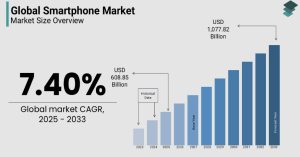In recent months, from the United States to Germany, from South Korea to Sri Lanka, many countries have been facing bleak economic data. What exactly has caused the current global economy to be in a state of stagflation with high inflation and low growth? What exactly has caused such severe damage to the global economy?
Pessimism about the global economic outlook is spreading. David Malpass, President of the World Bank, said not long ago: “For many countries, a recession will be hard to avoid.” Yi Xiaozhun, former Deputy Director-General of the World Trade Organization and former Vice Minister of Commerce of China, stated that the global economy is currently showing signs of stagflation, characterized by high inflation, high debt, high interest rates, and low growth. If the conflict between Russia and Ukraine escalates and becomes prolonged, it will inevitably exacerbate the shortage of global energy and food, thereby triggering a global economic crisis.
According to the latest forecast released by Citibank, there is a 50% possibility of a global economic recession. The recession will spread from one region to another and eventually affect the United States by the end of next year.
South Korea, known as the “canary in the global economy,” has already begun to sound the alarm: the latest data from the National Statistical Office of Korea shows that in July, South Korea's semiconductor shipments fell by 22.7% year-on-year. During the same period, South Korea's semiconductor national inventory remained high, with a year-on-year increase of 80%, and the growth rate was the same as the previous month.
This is the first time in nearly three years that South Korea's chip manufacturers have recorded a decline in factory shipments, highlighting the weakening demand for semiconductors globally as a barometer of the global economy.
Data from major economies have further intensified concerns.
Stagnant inflation in major economies is serious
According to data from the US Department of Commerce, the US gross domestic product (GDP) fell by 0.9% on an annualized basis in the second quarter of this year, marking two consecutive quarters of contraction and constituting a technical recession in the usual sense.
The Nikkei Asian Review pointed out that since 1949, there have been 10 technical recessions in the United States, all of which were later officially recognized as economic recessions. Citing expert opinions, the US consumer news and business channel reported that the US economy is expected to fall into a severe recession in 2023.
“The European economy is about to enter a recession,” predicted Maria Demertzis from the Brussels-based European and Global Economic Laboratory. Morgan Stanley forecasted that the eurozone economy will fall into a recession in the fourth quarter.
As the “bellwether” of the European economy, Germany's situation is not optimistic. According to data from the Federal Statistical Office of Germany, Germany's economic growth has come to a complete standstill in the second quarter of this year. The International Monetary Fund (IMF) significantly lowered its growth forecast for the German economy at the end of July, predicting that the German economy will grow by 1.2% in 2022 and 0.8% in 2023.
The global economy has entered a state of “stagflation,” characterized by high inflation and low growth. Currently, the performance of major economies is concerning.
The US economy has contracted for two consecutive quarters, showing clear signs of stagflation and recession; European countries are grappling with high food and energy prices, with the eurozone's inflation rate reaching new highs, and the “bellwether” Germany experiencing a halt in economic growth; some developing countries, such as Sri Lanka, have already fallen into national bankruptcy and political turmoil.
Most analyses suggest that the global economy will fall into a recession within half a year or one year.
The former director of the London School of Economics and Business Policy, Luo Si Yi, pointed out that the current situation of economic slowdown and rising inflation in the United States is precisely due to the economic stimulus plan launched by the United States in response to the economic downturn caused by the COVID-19 pandemic, which has caused destructive consequences for the world economy.
The United States has attempted to finance budget deficits through massive borrowing, while also massively expanding the money supply to stimulate consumption. However, this move has greatly stimulated the demand side of the economy, but has not boosted fixed investment, resulting in almost no growth on the supply side, leading to a sharp rise in inflation.
The inflation wave in the United States has spread to most economies worldwide, with a sharp increase in commodity prices being the most direct response. The prices of its commodities have more than tripled in two years, bringing a huge inflationary shock to the global economy.
The Guardian article argues that the United States' selfish behavior has led the world into an economic recession. As the Federal Reserve raises interest rates, debt denominated in US dollars has become an unbearable burden for countries around the world. Experts have warned that the Federal Reserve's interest rate hikes have exacerbated global financial market turmoil.
With international funds flowing back to the United States, developing countries will face challenges such as stock market fluctuations, currency devaluation, rising interest rates on US dollar debt, and a significant increase in the cost of imported raw materials.
Historically, the Federal Reserve's interest rate hikes have been a “mowing of the lawn” on a global scale. The recent interest rate hikes by the Federal Reserve have led to a rush of global capital into the United States, and some developing countries and emerging economies have even faced situations where they are unable to import food due to a lack of foreign exchange.
Data from the Institute of International Finance shows that in July, international investors withdrew about 10 billion US dollars from emerging industrial countries, which has been the fifth consecutive month of capital outflow exceeding inflow.
In addition, the United States often imposes tariffs on other countries and arbitrarily forms alliances to impose economic sanctions on other countries, causing severe damage to the world economy.
Analysts believe that the European geopolitical crisis has been protracted, and the counter-effect of the European Union blindly following the United States to impose economic sanctions on Russia has gradually emerged, exacerbating the severe inflation situation in Europe.
The recession is caused by the Fed's rate hikes
An article on the US-based Eurasia Review website points out that in pursuit of American unipolar hegemony, the Biden administration is posing a risk to the future economic stability of China, the West, emerging Asia, and the Global South.
The article notes that before Trump launched the trade war, China had already become the engine of the world economy. Most importantly, China also propelled the progress of many small and medium-sized economies around the world. Now, the Biden administration has turned frictions with China into another unwarranted Cold War, bringing the world economy to the brink of an abyss.
Due to the interdependent nature of the global community, any actions aimed at destabilizing China could potentially undermine the living standards that Western countries have enjoyed for decades, while also turning the most vulnerable economies into failed states.
This is a very special adjustment of the world economy's inflation, stagnation, and decline, and there is still no hope for a solution in sight. The root of the problem lies in the United States' politicization of economic issues and the use of ideology to draw lines.
For example, to solve the European energy issue, it is necessary to resolve the Russia-Ukraine conflict; to solve the supply chain issue, it is necessary to strengthen cooperation with China. However, the United States has been clamoring for extreme sanctions against Russia and ‘decoupling' from China. At present, under the severe damage to international mutual trust, it is difficult for countries to cooperate to respond to the global economic downturn.
The financial crisis of 2008, although fierce and highly destructive, was fortunately met with a cooperative political will from the major economies at the time, and the G20 cooperation mechanism was urgently established, leading the International Monetary Fund, the World Bank and the World Trade Organization to carry out multilateral cooperation, and ultimately curbing the further spread of the financial crisis.
But now, the three major institutions of the Bretton Woods system responsible for global economic governance are severely fragmented, and the G20, which serves as the last line of defense in leading the response to economic crises, can hardly function normally.
In this situation, once a global financial crisis occurs, countries are bound to act as they did during the Great Depression of the 1930s last century, engaging in beggar-thy-neighbor policies and erecting barriers, with unimaginable consequences.
An article in the British newspaper The Guardian states that there is no sign that the United States will change course. The Federal Reserve is well aware that inflation originates from insufficient commodity supply, only the government can solve this problem, but it seems that this cannot prevent it from pushing the economies of the United States and other countries into recession.
The European Central Bank (ECB) has also been brought into the interest rate hike rhythm by the Federal Reserve. Market analysts predict that it is almost certain that the ECB will raise interest rates by at least 50 basis points again in September, while the hawks are striving for a 75 basis point increase.
An editorial published by the German newspaper Süddeutsche Zeitung stated that the eurozone has fallen into a predicament of high inflation and must also bear the inflationary pressure transferred from the United States. The ECB has to raise interest rates more significantly to deal with inflation, which sharply increases the risk of its own economic downturn.
Emerging economies and developing countries are under tremendous pressure. According to a report by the Japanese Economic News, the longer the duration of the US dollar's appreciation and the US interest rate hikes, the faster the crisis will spread.
The World Bank warns that “high debt, fiscal and current account deficits in many emerging and developing countries are causing financial stress, which could lead to a further slowdown in economic recovery.”
Experts point out that last year, global economic growth rebounded to 6.1%, but nearly half of the countries have not yet returned to the pre-2019 level, and nearly 90% of countries have a two-year compound average growth rate lower than the trend value of the five years before the pandemic.
Seth Carpenter points out, “Even if we avoid a global economic recession, it is difficult to see economic activity returning to the trend before the COVID-19 pandemic.”
















